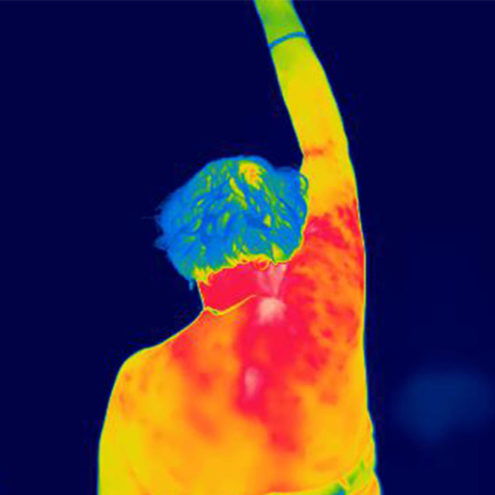Fatigue syndrome and ADHD

Introduction to ADHD and Fatigue Syndrome
With an increased understanding of neuropsychiatric diagnoses, the link between Attention Deficit Hyperactivity Disorder (ADHD) and fatigue syndrome has received more attention. This article explores how these two conditions interact with each other and the impact they can have on individuals’ lives.
ADHD and its impact on concentration and impulsivity
ADHD is a neuropsychiatric disorder characterized by difficulties in sustaining attention, impulsivity and hyperactivity, among other things. Individuals with ADHD may experience difficulties in focusing on tasks, organizing and completing work, and managing impulses. These challenges can lead to increased levels of stress and frustration, which in turn can affect both work and personal relationships.
Concentration problems: Difficulties in maintaining focus on a task can lead to incomplete work and a feeling of inadequacy.
Hyperactivity: A constant feeling of restlessness and the need to be in constant motion.
Impulsivity: Difficulty controlling impulses can result in negative consequences that can lead to further stress.
Fatigue Syndrome as a Reaction to Long-Term Stress
Fatigue syndrome occurs as a reaction to prolonged stress and is characterized by, among other things, a lack of energy and a tiredness that does not go away with rest, sleep disturbances, and memory and concentration difficulties. For people with ADHD, the constant management of symptoms can lead to an accumulated level of stress, which increases the risk of fatigue syndrome.
Chronic stress: ADHD symptoms can result in a constant high level of stress.
Emotional strain: Emotional difficulties that accompany ADHD, such as low self-esteem and anxiety, can contribute to the development of fatigue syndrome.
Physical exhaustion: The physical aspects of hyperactivity, along with a poor quality of sleep, can lead to physical exhaustion.
Understanding the link between ADHD and fatigue syndrome is important for providing effective treatment and support. This knowledge can help individuals with ADHD to better manage their daily stress and thus reduce the risk of developing fatigue syndrome. It is also important for healthcare providers to recognize the signs of fatigue in people with ADHD and to offer appropriate treatment and support to improve their lives.
What is ADHD?
Attention Deficit Hyperactivity Disorder (ADHD) is a neuropsychiatric disorder. It is a condition that affects an individual’s ability to sustain attention with or without concurrent overactivity and impulsivity.
Definition and Characteristics of ADHD
ADHD is defined as a neuropsychiatric disorder that affects brain function and development. It is characterized by three main symptom groups: attention problems, hyperactivity and impulsivity.
Attention problems: Individuals with ADHD often have difficulty staying focused on tasks or activities, are easily distracted, and have difficulty organizing and completing tasks.
Hyperactivity: This involves an excessive level of activity that is not appropriate for the person’s age. It can manifest as constant movement, restlessness and difficulty sitting still.
Impulsivity: Individuals with ADHD may act without thinking about the consequences, have difficulty waiting for their turn and often interrupt others.
Emotional instability: rapid mood swings and problems with emotional regulation. People with ADHD experience emotions much more intensely than other people do.
Symptoms of ADHD
The symptoms of ADHD can vary significantly from person to person but usually include the following:
Concentration difficulties: difficulty concentrating on details and a tendency to make careless mistakes. Easily distracted.
Forgetfulness in daily activities: Often loses things and has difficulty following instructions or carrying out routines.
Disorganized behavior: Difficulties in planning and structuring tasks and activities.
Excessive chatter and interrupting: Talk too much and find it difficult to let others finish their sentences.
Emotional instability: rapid mood swings and problems regulating emotions. People with ADHD often have a very high affective intensity and therefore experience emotions much more intensely.
The understanding of ADHD has evolved considerably over the past decades, and it is now known that the condition not only affects children but continues into adulthood. Early diagnosis and treatment are crucial to help individuals with ADHD manage their symptoms effectively and improve their quality of life. Treatment may include a combination of medication and behavioral therapies. It is often necessary to make adaptations in the home, school or workplace to be able to assimilate information and reduce the risk of impression fatigue.
What is Fatigue Syndrome?
Fatigue syndrome is a condition that has become increasingly recognized in the context of the demands and stress of modern working life. It is characterized by an overwhelming sense of fatigue and a reduced ability to cope with daily activities and stress.
Definition and Causes of Fatigue Syndrome
Fatigue syndrome is described as a psychological condition in which an individual feels physically and mentally exhausted due to accumulated stress, often over a prolonged period. This condition differs from ordinary fatigue in that it cannot be easily remedied by rest or sleep.
The causes of fatigue syndrome can vary but often include:
Chronic work-related stress: Long-term exposure to high workload and pressure.
Personal factors: Such as perfectionism and difficulties in setting boundaries.
Lack of support: Insufficient support in the work environment or in personal relationships.
Work-life imbalance: Difficulty finding time for relaxation and recovery.
Symptoms of Fatigue Syndrome
The symptoms of fatigue syndrome can vary but usually include a combination of physical, emotional and cognitive signs:
Physical exhaustion: A persistent feeling of fatigue and lack of energy, even after rest.
Emotional Exhaustion: Feelings of hopelessness, depression and reduced engagement in work and other activities.
Cognitive problems: Difficulty with concentration, memory and decision-making.
Insomnia: Difficulty falling asleep or experiencing undisturbed sleep.
Physical symptoms: Such as muscle aches, headaches, and digestive problems.
Fatigue syndrome often requires a comprehensive treatment plan that may include psychotherapy, stress management strategies, lifestyle changes and sometimes medical treatment. Importantly, individuals experiencing these symptoms seek professional help to avoid long-term consequences on their health and well-being. Understanding and recognizing the signs of fatigue syndrome is an important step towards recovery and regaining a balanced lifestyle.
Overlap between ADHD and Fatigue Syndrome
In the case of ADHD and Fatigue Syndrome, there is a significant overlap in symptoms and challenges presented by these two conditions. Understanding their interplay is crucial to effectively manage and treat individuals suffering from both conditions.
Common Symptoms and Challenges
There are several symptoms and challenges that are common to both ADHD and fatigue syndrome. The fact that the symptoms of ADHD also often result in fatigue syndrome can make diagnosis and treatment complex:
Chronic fatigue and lack of energy: Both ADHD and fatigue syndrome can lead to a constant feeling of tiredness, which can affect a person’s ability to function in everyday life.
Difficulty concentrating: Individuals with ADHD or fatigue syndrome may have problems focusing and maintaining attention, which can affect work and study.
Emotional exhaustion: Both conditions can involve emotional exhaustion, which manifests itself in the form of irritability, depression and a reduced ability to cope with stress.
Sleep problems: Problems with sleep quality are common in both ADHD and fatigue syndrome, which can contribute to daytime fatigue and reduced performance.
The interplay between ADHD and Fatigue Syndrome
The interplay between ADHD and exhaustion syndrome is complex and can involve several aspects:
Increased stress: The challenges that come with managing ADHD, such as organizational difficulties and impulsivity, can increase stress levels, which in turn can lead to fatigue syndrome.
Worsening ADHD symptoms: Exhaustion and chronic fatigue can exacerbate the symptoms of ADHD, leading to a negative spiral where each condition intensifies the other.
Treatment complexity: Treating individuals with both ADHD and Fatigue Syndrome requires an individualized and integrated approach, taking into account both conditions.
To effectively address the overlap between ADHD and fatigue syndrome, it is important that treatment plans take a holistic view of the individual’s needs. This may include a combination of medication for ADHD, therapy to manage stress and fatigue, and lifestyle changes to improve sleep and reduce fatigue. By understanding how these conditions interact, health professionals can offer more effective treatments and support strategies to help individuals regain balance in their lives.
Why Do People With ADHD Have A Higher Risk Of Suffering From Burnout Syndrome?
People with ADHD have an increased risk of developing fatigue syndrome due to several factors that are directly linked to their ADHD symptoms. These factors include difficulties coping with stress, lack of self-regulation, emotional instability, sleep problems, and challenges with organization and planning.
Difficulty Managing Stress
People with ADHD often face difficulties when it comes to managing stress, which can lead to exhaustion syndrome:
Overwhelmed by impressions: Individuals with ADHD may have difficulty filtering out impressions, making them more likely to be overwhelmed by daily stressors.
Highly reactive stress response: They may have a more sensitive and intense stress response, making it difficult to recover from stressful situations.
Lack of Self-Regulation and Impulse Management
ADHD often affects the ability to self-regulate and manage impulses, which contributes to an increased risk of fatigue syndrome:
Difficulty with Impulse Control: This challenge can lead individuals with ADHD to take on too much, both at work and at home, increasing the risk of burnout.
Emotional Exhaustion: Difficulty regulating emotions can result in emotional exhaustion and higher stress levels.
Sleep problems among people with ADHD
Sleep problems are common in people with ADHD and play a major role in the development of fatigue syndrome:
Insomnia: Difficulty falling asleep, repeated awakenings during the night, and a feeling of not being rested can contribute to cumulative fatigue.
Disturbed sleep cycle: Many people with ADHD have a disturbed circadian rhythm that can lead to sleep deprivation and consequently exhaustion.
Challenges with Organization and Planning
ADHD can cause difficulties with organization and planning, which can contribute to a feeling of chaos and increased stress:
Time management: Difficulties with time perception and time management can lead to missed deadlines and increased workload.
Organizational challenges: Challenges with organizing and prioritizing tasks can create a feeling of constant lack of control, which contributes to stress and exhaustion.
These factors illustrate why people with ADHD are more likely to develop fatigue syndrome. It is important for individuals with ADHD to be aware of these risks and to work proactively to manage their symptoms, through strategies such as stress management, effective time management, regular exercise and good sleep hygiene. For people with ADHD, it can also be important to seek professional help to develop effective strategies to manage these challenges.
Prevention of Fatigue Syndrome in Individuals With ADHD
Preventing fatigue syndrome in individuals with ADHD is an important aspect. With the right strategies and support, individuals with ADHD can reduce their risk of fatigue and significantly improve their quality of life.
Time Management and Distraction Minimizing Strategies
Effective time management and minimizing distractions are crucial to help people with ADHD avoid overload and stress that can lead to fatigue syndrome:
Use of different planning tools: Calendars and app-based reminders can help individuals with ADHD stay on top of their commitments and deadlines.
Structured routines: Creating and maintaining daily routines can help reduce chaos and improve focus.
Minimizing distractions: Create a distraction-free work environment, such as turning off unnecessary notifications on your phone or working in a quiet room.
The Importance of Regular Breaks and Relaxing Activities
Taking regular breaks and engaging in relaxing activities is important for managing stress levels:
Regular breaks: Short, regular breaks throughout the day to breathe, stretch, or just take a short walk can help restore energy and focus.
Relaxing activities: Activities such as strength training can be a great way to reduce stress. Many people with ADHD can experience increased stress and impatience with calm, low-intensity activities such as yoga and meditation. It’s important to try them to see what works for you.
The Importance of Support and Treatment for ADHD
Getting adequate support and treatment for ADHD is crucial to preventing burnout syndrome:
Professional help: Regular contact with a psychologist, psychiatrist, or other healthcare professional who specializes in ADHD can help individuals better understand and manage their symptoms.
Medication: For some, ADHD medication can be an important part of treatment to help regulate symptoms such as hyperactivity and difficulty concentrating.
Support groups and networks: Participating in support groups or having a network of others living with ADHD can provide valuable support and understanding.
Preventing fatigue syndrome in individuals with ADHD requires a conscious effort and commitment to managing both ADHD symptoms and stress. By implementing effective strategies for time management, stress reduction and seeking adequate support, individuals with ADHD can reduce their risk of fatigue and improve their overall health and well-being.
Conclusion and Recommendations
Managing ADHD and preventing Fatigue Syndrome requires an understanding of how these conditions affect each other and a proactive approach to managing the challenges associated with them. By addressing these issues, individuals with ADHD can improve their quality of life and reduce their risk of developing fatigue syndrome.
The Necessity of Identifying and Addressing ADHD-Related Challenges
It is important for individuals with ADHD to be aware of how their condition affects their daily lives and to seek appropriate treatment and support. Not doing so can lead to increased stress and the development of fatigue syndrome. It is therefore important to:
Get an accurate diagnosis: If you suspect you have ADHD, seek professional help for an accurate diagnosis.
Manage symptoms effectively: This can include the use of medications, therapy, coaching, and the use of strategies for managing stress, organization, and time management.
Create a supportive environment: Both at home and in the workplace, make sure you have support and understanding of your needs.
Treatment advice and additional resources
Treatment of ADHD and the prevention of fatigue syndrome often requires a combination of strategies and resources. Here are some recommendations:
Seek professional advice: A psychologist or psychiatrist can offer individualized treatment and strategies for dealing with ADHD and its related challenges.
Education and self-help: Learn more about ADHD and fatigue syndrome through reliable sources and self-help books. This can provide you with tools and strategies for managing your situation.
Support groups and communities: Joining support groups, either online or in person, can provide a sense of community and understanding.
Lifestyle changes: Including regular exercise, a balanced diet, and good sleep habits can help reduce the symptoms of both ADHD and fatigue syndrome.
In conclusion, it is important for individuals with ADHD to be proactive in managing their condition to reduce the risk of fatigue syndrome. By combining professional treatment, education, support and appropriate lifestyle changes, a more balanced and healthy lifestyle can be achieved. Remember that each individual is unique, and what works for one person may not work for another. Finding the right combination of strategies and support is key to managing ADHD and preventing fatigue syndrome.
 Search
Search


































